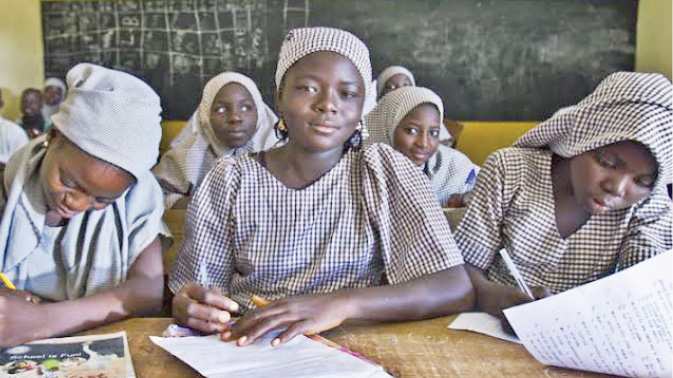Civil society pushes back barriers against women
At least four civil-society organisations are on a year-long advocacy to push back barriers against gender equality. They are pushing for legislation to guarantee free education up to secondary school, passage of the Gender and Equal Opportunity bill, more access for women and girls to ICT education, and to end violence against sex workers by […]

Ongoing advocacy to legislatures could see girls spend more years in school and protect women from gender based violence
At least four civil-society organisations are on a year-long advocacy to push back barriers against gender equality.
They are pushing for legislation to guarantee free education up to secondary school, passage of the Gender and Equal Opportunity bill, more access for women and girls to ICT education, and to end violence against sex workers by law enforcement agents—starting with the FCT.
The four are part of Rise Up’s gender and equity initiative to advance and amplify the voices of women and girls with regards to health, opportunities for investment, entrepreneurship and violence against women.
The organisations met in Abuja to “review their strategy,” said Theresa Effa, country director of Rise Up for Women and Girls Nigeria, which supports the advocacy efforts with a year-long grant.
“They have been in the field for the past 11 months. We want to see what they have implemented, how much they have achieved, and where next to go.
“One of the challenges, especially for civil society, is how to share efforts, especially the results they have achieved, identify some barriers in the field and be able to re-strategise.
The bill seeking an amendment to the Universal Basic Education act scaled second reading before the end of the eighth Assembly.
But Youth Hub Africa, one of the four CSOs, wants the ninth assembly to consider the Senate’s version of the bill and “pass it appropriately”, according to Medupin Olusegun, of Youth Hub Africa.
“That way some parents won’t have excuse to marry off girls after JSS3. And we can also achieve quality funding for education.
Vaccine Network for Disease Control is pushing for the Gender and Equality Opportunity bill to help women “compete at their optimum level,” said Oyeyemi Pitan.
“At the root of every gender-based violence is gender inequality. Women are abused physically, emotionally, psychologically, sexually. When you know there are legal consequences for your actions, if you put laws in place, then you actually push for it,” she also said.
Similarly the African Centre for Citizens Orientation is urging to the Nigerian Communications Commission and the Universal Service Provision Fund to help increase access for women and girls to information community technology education.
“The national broadband plan is being reviewed, women and girls are being given special attention, and NCC has earmarked N500 million to support special interventions in schools and communities. And the NCC universal provision fund asks tertiary schools to apply for grants to support ICT education and research,” said Peter Adeleye, national coordinator of the Centre.
However, the last project to end violence sex workers face from law enforcement agents has been “tedious and hectic”, according to Amaka Enemo, of the Passion and Concern for Women Welfare Initiative.
The project aims to bring police and sex workers “together to understand one another” and Enemo is optimistic both parties can sit at the table.
